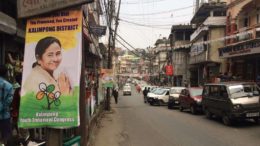Andhyaaro
The air no longer holds in itself the fragrances of orchids and marigolds and azaleas and the murmuring bamboo trees that once would twitch in delirious orgasms through night and day seem to have surrendered the vibrancy of their youth today. The old mountains to the new day are no more than just that – old mountains. The story-telling rivers and the singing brooks and streams have narrated their last chapters and have sung their last melodies and now bow their heads in silence. The lustrous pine trees adorning the slants of the hills have lost their telepathic abilities. And the people – men, women, teenagers, children – have traversed so far away from their basic nature that it would become an arduous task if one were to tell man from machine. There is a certain chaos that dwells in the atmosphere of the town that we see today. You hear the sounds – the clamour, the noise, the rhythm of regularity – and you perceive it well and you turn your eyes in their sockets and you identify the frenzy that unfurls around you for time has trained you well. You breathe in the air. A concoction of colours enters you and along with it, you inhale the remains of that old town. Something flares up inside you. Memories are burning; memories of a town that is not this, memories of a life that is not this. And you realize the bittersweet travesty that is ‘time’. Gorkhaland Revolution was born in this town in 1986 and two years later, I.

